
Charles Esten: “To be a songwriter of any calibre you have to be emotionally intelligent.” Photo: Christie Goodwin
With a UK tour just around the corner, the country star and actor takes us through a lifetime of songwriting
Any fans of the television show Nashville will know that they hit the jackpot when casting Charles Esten, previously known for his work on the improv comedy show Whose Line Is It Anyway? as tormented guitarist Deacon Claybourne. Between 2012 and 2018, over six seasons, it wasn’t just his absorbing performances which caught attention but also how he embraced his role as the show’s de facto leader and helped build a world that extended far beyond the screens of its loyal audience. Along with fellow cast members such as Clare Bowen and Jonathan Jackson, Esten took the music of Nashville out onto the road so that fans could see their idols up close and hear their music in a live setting.
Esten’s own compositions also featured on the show and tours. Songs like I Know How To Love You Now suggested that he was fully invested in the tempestuous relationship between his character and Rayna James (played by Connie Britton). Outside of Nashville, he has proved himself to be both a prolific and versatile writer of country songs, as showcased on Every Single Friday, his Guinness World Record-breaking run of 54 singles in 54 weeks.
All this and more cropped up in our recent chat…
How much songwriting had you done before Nashville?
“I started off as a kid, I was fascinated by music. You start off singing and then you suddenly realise that somebody wrote that. The earliest evidence I could give you was in third grade at Maury Elementary School. They had a contest to see who could write the school song. We were told to take an existing Disney song and use that as the tune and then substitute in the lyrics. I went with It’s A Small World After All and I wrote my masterpiece It’s A Great School After All. That won the contest and, for a number of years, that was the school song. I can barely remember a time before I was trying to put lyrics together.”
How did that writing then progress?
“I was always just writing songs on my own, songs about my family. Then my mum helped get me guitar and piano lessons. When I was supposed to be doing what they were teaching me I was trying to figure something that was on the radio. Then I went to college and was the lead singer in a band. We were mostly a covers band but gradually I started to write. That’s when you get bitten. I had played songs on my guitar before and I could tell when people were moved, and that’s a great feeling, but there’s another feeling entirely when you write a song and bring it to your band. Then it’s… here comes that bassline, here comes that guitar part and then the drums kick in. Once that happened I was pretty hooked.
“I was the only one in that band that wasn’t going to a desk job. They all became, as the country song [Mammas Don’t Let Your Babies Grow Up To Be Cowboys] says, doctors and lawyers and such. I went on to be an actor thinking, ‘Well I’ll go out there and hopefully I’ll be able to combine the music with the acting.’ I was able to do that at certain points, like when I went and played Buddy Holly in London. When I got Whose Line… well, that was a thrill too. With the musical improv, you were writing a song in 30 seconds. You’ve got to start and they’re telling you a ridiculous title and I always loved that challenge and the magic of hopefully being able to come up with something in front of an audience.”
Were you still writing songs when Nashville eventually came along?
“I did stop performing for a long time but I never stopped writing. I had a piano and a couple of guitars in my house and was always writing songs and even demoed a couple. My music had been veering more and more country. I was without the band, on an acoustic guitar or piano, and I like the stories you’re able to tell with country music – a little more literal but poetic as well. About seven years before Nashville I was driving down the street in Los Angeles listening to the country music station. It was talking about a guy named Jeffrey Steele who was going to be in Hollywood doing a one-man writer’s round, talking about the songs that he had written. Great songs for Rascal Flats like What Hurts The Most and My Wish. I heard that he was going to be performing live so I said to my wife, ‘I think I’m going to go and watch this guy.’ I went by myself and it really fired me up to become more intentional about my writing.
“Once you come to Nashville you see writing in a way that you’re not waiting for the muse to strike, you’re going to write with someone and the muse strikes when you’re calling it. I wish I had written all these years in a more organised and professional manner. By the time I had done that I was writing with some people in Nashville, like Jane Bach who had some hits with Reba McEntire and Jo Dee Messina. She and I started writing together and began doing writers rounds in Los Angeles at a wonderful little Korean Barbecue place. The funny part is that after a while she said, ‘You have to come to Nashville with me and we’ll sing our songs at The Bluebird,’ where it was made famous to sit in a round and play the songs that you’d written.

Charles Esten: “Too much analysis sometimes slows me down, so let’s just write.” Photo: Christie Goodwin
“I actually bought a plane ticket twice but both times I ended up getting acting work that I needed to do. That was the point that I said to my wife, ‘Man when am I ever going to get to Nashville?’ Before long I found myself sitting in The Bluebird Café with a guitar in my hand portraying Deacon Claybourne. What was especially thrilling was that three months or so later I was at The Bluebird again but as myself, playing my music. It’s the story of a long run-up to finally coming home to a place that I’d never been before, which is another song lyric [John Denver’s Rocky Mountain High] but is exactly how I feel. Once I was here that’s all I wanted to do, write songs.”
It took a while to get I Know How To Love You Now on the show. Were you nudging the producers to make that happen or waiting to be asked?
“I was getting opportunities to get in the room with these great writers and, at that point, we were not focussing on a particular plot angle, we were just trying to write songs. There’s no way to deny, I was being influenced by Deacon and the path he had to walk. You could certainly write from a position of happiness; I have wonderful kids and an amazing wife and we’ve been together for all these years. You can write from that place, and I do, but it’s also nice to have this alter ego who is going through these classic country problems – losing his women, losing his dog, losing his sobriety…
“From time to time, when I was writing with somebody, I would go, ‘Well that would go well on the show.’ In fact, I wrote a song called Pretend It Isn’t There for the first season that I later released under my Every Single Friday project. It was about these two people who wanted to be around each other but weren’t allowed to be together, just like Deacon and Rayna. That song was chosen by T-Bone [Burnett, the show’s music producer in season one] and Callie [Khouri, the show’s creator]. It was always the case with Nashville that it wasn’t just the best song, it was the best song for the scene. I started to play it and it didn’t fit with the scene that well. I went to Callie and said, ‘I’m not sure this fits,’ and she agreed. It seemed a little crazy that I went to her because I’d never had a song on the show at that time.”
How did you then get a song picked up by Callie?
“It wasn’t until the end of the second season that Callie came to tell me that Deacon was going to be proposing to Rayna, and I just want to know this is the type of wonderful writer Callie is, she asked, ‘Is there anything you think Deacon would like to say in that proposal?’ About a month earlier I had finally been able to write with the great Deana Carter. We ended up with a song called I Know How To Love You Now. I promise you it was not written for Deacon and Rayna. Deana came in with this thing she wanted to write about and I had another title, So Many Sorries Ago. I had written that down on my phone where I keep all my notes. We’d been talking about what it would be like for a guy to say, ‘I get it, I had all these apologies but now I understand.’ I gave this title to Deana and she said, ‘That’s great, but I think we can beat it.’
“We kept ruminating on what might be the title and sometimes it helps me to speak out what I’m trying to say. Maybe that’s the improv in me. ‘If I was a character saying it, what would I say?’ So I was saying, ‘I understand, I made all these mistakes but I get it. I know how to love you now.’ We both just stopped and looked at each other and wrote I Know How To Love You Now. I was telling Callie that I had this song and she said, ‘Oh that’s great. Can we use that?’ And I said, ‘What, the song?’ And she said, ‘No, that line!’ For a writer, it’s hard to give up a great line, especially the title of your song. But you’ve got to understand, Carrie Khouri was the reason I have all of this… Deacon, getting to play The Bluebird and The Opry, so there’s not much in the world I would say no to for her. I said yes and, sure enough, that line was in Deacon’s proposal to Rayna.”
And the song eventually followed?
“A couple of weeks before we came back for the third season I get a call from Callie and she said, ‘Now we’d like you to sing the song and we’d like you to do that in the opening episode of the third season and, more than that, we’d like you to sing it live.’ That was the one episode that Chris Carmack and I both sang a song live at The Bluebird. That was the quintessential Nashville songwriting moment that brought it all together.”
“It was good to know that I hadn’t just shoe-horned one of my songs onto there because I was one of the leads on the show. They had come to me. The calibre of songwriters that we had, that put these words in our mouths and songs at our fingertips, they were so impressive. I’m still blown away by these wonderful people and to think that I was able to get one of mine on, and eventually a couple more, was truly amazing. And to sing it live, that made it special. Your songs are like your children and over the years I had so many that nobody ever heard because I just wasn’t getting music out. My family would hear them and maybe a friend or two, but mostly it was just the walls. It was nice to have one of these children step out onto the stage and the TV and think that I was able to bring something to that Nashville moment.”

Charles Esten: “It was almost like I was creating arrows to put into my quiver.” Photo: Christie Goodwin
Did that bolster your belief in your songwriting?
“Well, it wasn’t bolstering. It wasn’t that I needed a push to write music. The music writing always just came and the fact that I was here in town and got to play this guy Deacon meant that a lot of these songwriters knew who I was. So I had more access and maybe they thought, ‘Maybe we’ll get a song on the show,’ because everyone wants to write for a purpose here. I started meeting so many of these Nashville songwriters, and not just the ones that wrote for our show. It just reminded me that songwriters are my favourite people in the world to hang with. It’s a really magical thing to sit in a room with a great songwriter and try to bring what you can. There’s so much about them. To be a songwriter of any calibre you have to be emotionally intelligent, you have to have a sense of humour and have to be a storyteller – those three things right there, I want to hang with that person.
“On top of that you’re sharing these things, maybe with someone you’d just met, and trying to go to a deep place to write something that moves you or is very funny. Whatever that is, it’s a strange Nashville thing that two people walk into a room and when you’re done these three things come out, those same two people and the song. I’ve always been excited by that and coming to Nashville only increased that. I was writing and writing and was thinking, ‘What is the purpose of all these songs?’ I was shooting the show so wasn’t able to go out and tour that much. But it was an ensemble show which meant I did have free time to go out and write. It was almost like I was creating arrows to put into my quiver, like Robin Hood. At a certain point, you have to make the arrows that you’re going to use eventually.
“That’s what I did and I did it so enthusiastically that I started getting a catalogue of my own. That’s why, when it came time to put out an EP or an album, it was hard for me to whittle down the ones I’d leave out. They were a very broad spectrum of country music and so I didn’t want to limit myself, because they were all me in a way, so I said, ‘I’m going to start putting out singles and I’m going to put one out a week, and I’m going to do it as long as I have songs that I’m proud to release.’ I started to put that out, not just to the universe but on social media. I figured if people watched me once a week maybe they’d like to hear a new song once a week and by the time I looked up it had been 54 weeks and 54 songs. Not that I needed bolstering, more that I wanted to let it all flow and let it all fly. Too much analysis sometimes slows me down, so let’s just write.”
Is it possible to choose any particular favourites from those 54 songs?
“Aside from the fact that they are very much like your children, I think Through The Blue. It is one that was streamed the most and I like that one for various different reasons. It’s nice to hear from those people that have reached for that song when they were going through something hard, going through the blue. Otherwise, there’s definitely a couple… He Ain’t Me is a rocker that I love closing shows with. That’s another thing, when you’re a performing artist and a songwriter it’s not just arrows in your quiver but weapons in a battle that will win over the audience. Sometimes you’ll be on the road and playing a show and you’ll go, ‘Man, I need a song that does this in this moment.’
“That’s a cool inspiration because you go back and you write for that moment and then there you are on stage playing it. I pictured a song that opened with a guitar riff, opening the whole show with it, and that’s how I came upon Buckle Up – and I literally opened the Nashville tour with that song. The new ones are also always the favourites, the ones that you haven’t played out that much and you’re about to release.”
We know you also perform covers in your shows, what is it about a song that makes you want to add it to your set?
“A lot of times it’s very organic. Sometimes I’ll be sitting in my car at a stoplight and a song will come on and I’ll take my camera and take a picture of the radio screen that says what’s playing. I like doing unusual covers and I don’t like to be slavish to the way they’re done, I like to bring who I am to it. The world has their version of it, that’s always going to be the better version, but what a cover is for me is a moment of ‘Aha’ for the audience, where they go, ‘Oh my gosh, he’s singing that one!’
“It’s writing country songs. I somehow more and more hear other songs as country songs. I think it has to do with, from my perspective, what a great song is. Take Heroes by David Bowie, which I’ve done before with my band, you start playing and you realise it has a country heart to it and it could work. One of the strangest that I couldn’t believe how well it worked was Love Will Tear Us Apart. I played that on guitar on my last solo tour and there’s something that was very country about it. The lyrics are country and Deacon through and through.”
Lastly, what can your fans expect from one of your shows?
“I’m excited to be coming back there with a band. This is a band that played with me on the Nashville tour and the band leader is Colin Linden who was also the voice of Deacon Claybourne’s guitar, he an incredibly great guitar player, dobro, slide… he can do all of it. I’ve also written a couple of songs with him.
“The other thing is that I’m going at these setlists and I want to make a night that we can all remember. I want to make unforgettable moments where we’re connecting. That connection is the song, that’s the wire between me and whoever is in the audience. In the end, that’s all that these songs are; thoughts that are spoken and sung out loud that let us come together in that moment and sing it all out and move together or maybe hurt your heart a little bit or lift you up. I want a whole bunch of those moments on all of those nights so that people go home having felt something.”
Interview: Duncan Haskell

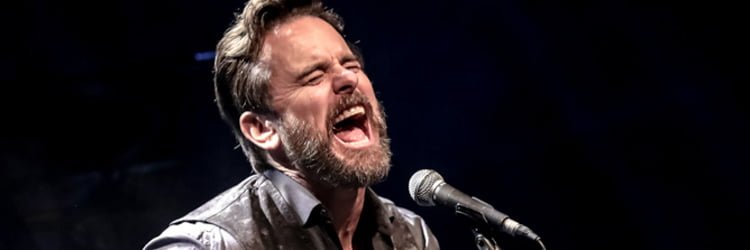

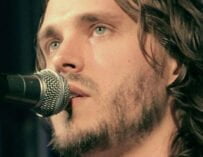
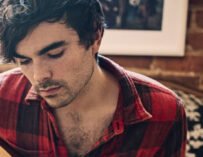
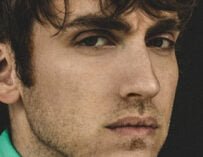

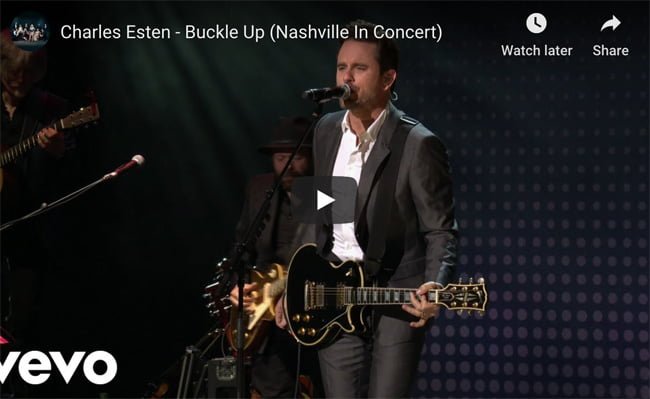

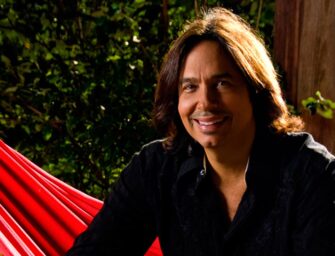
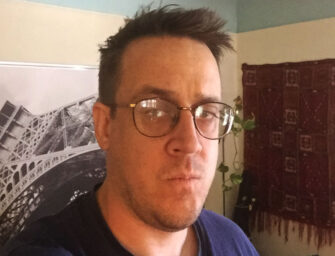

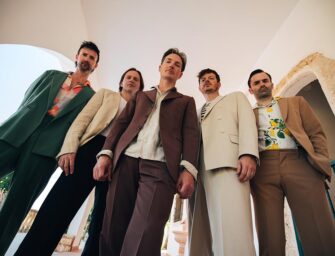























I have all Chip’s “Friday” disks and love his music. His Mama told my wife that when he was about to start “Nashville”, the studio hooked him up with a famous songwriter to help polish his country credits. I thought it was Merl Haggard, which took me to Merl’s music which I now love as much as Chip’s. But I’m wondering if it really was Merl. My question: was it someone else? Who?